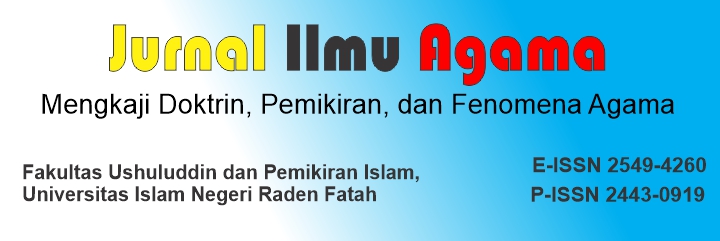PENTINGNYA IJTIHAD DALAM AGAMA PERSPEKTIF MUHAMMAD IQBAL DAN IMPLIKASINYA BAGI TEOLOGI DAN KEMISKINAN
Main Article Content
Abstract
This study wants to see how important the ijtihad by Muhammad Iqbal is on religious knowledge and experience which often causes conflicts of thought among Western and Islamic intellectuals. In his reform efforts, Iqbal focused his attention on the formation of Muslim personalities, through the concept of ego or khudi (personal, self, self-hod). In this context, this article also wants to discuss in detail the implications of Iqbal's thoughts for theology and poverty. This is important, because according to Iqbal, Islamic theology has been stagnant for about 500 years. So that the space for ijtihad is not very developed, and causes Muslims to fall into poverty. It is necessary to review Iqbal's thoughts about insan kamil (perfect human) which can only be achieved if it has passed three phases, namely obedience to the law, self-control, and awareness as God's representative. This research is also in the form of library research on the concept of ijtihad in Muhammad Iqbal's Islamic perspective. As an analytical tool, the author uses a historical-philosophical approach that relates to the history and thoughts of a person who has a deeper and comprehensive meaning. This paper concludes, first, the ijtihad carried out by Muhammad Iqbal is centered on Islamic sciences, such as theology, Sufism, interpretation and so on which have an impact on religious experience, thought, and the formation of good individuals in Islamic society. Second, consistent with the above ijtihad, Muhammad Iqbal formulated the concept of khudi and insan kamil. The concept of insan kamil Iqbal is a further development of the concept of khudi. Therefore, the author synthesizes the two concepts as a subtilization or importance of ijtihad in Muhammad Iqbal's religious perspective.
Article Details
Authors who publish with this journal agree to the following terms:
- Authors retain copyright and grant the journal right of first publication with the work simultaneously licensed under a Creative Commons Attribution 4.0 International License that allows others to share the work with an acknowledgement of the work's authorship and initial publication in this journal.
- Authors are able to enter into separate, additional contractual arrangements for the non-exclusive distribution of the journal's published version of the work (e.g., post it to an institutional repository or publish it in a book), with an acknowledgement of its initial publication in this journal.
- Authors are permitted and encouraged to post their work online (e.g., in institutional repositories or on their website) prior to and during the submission process, as it can lead to productive exchanges, as well as earlier and greater citation of published work.

